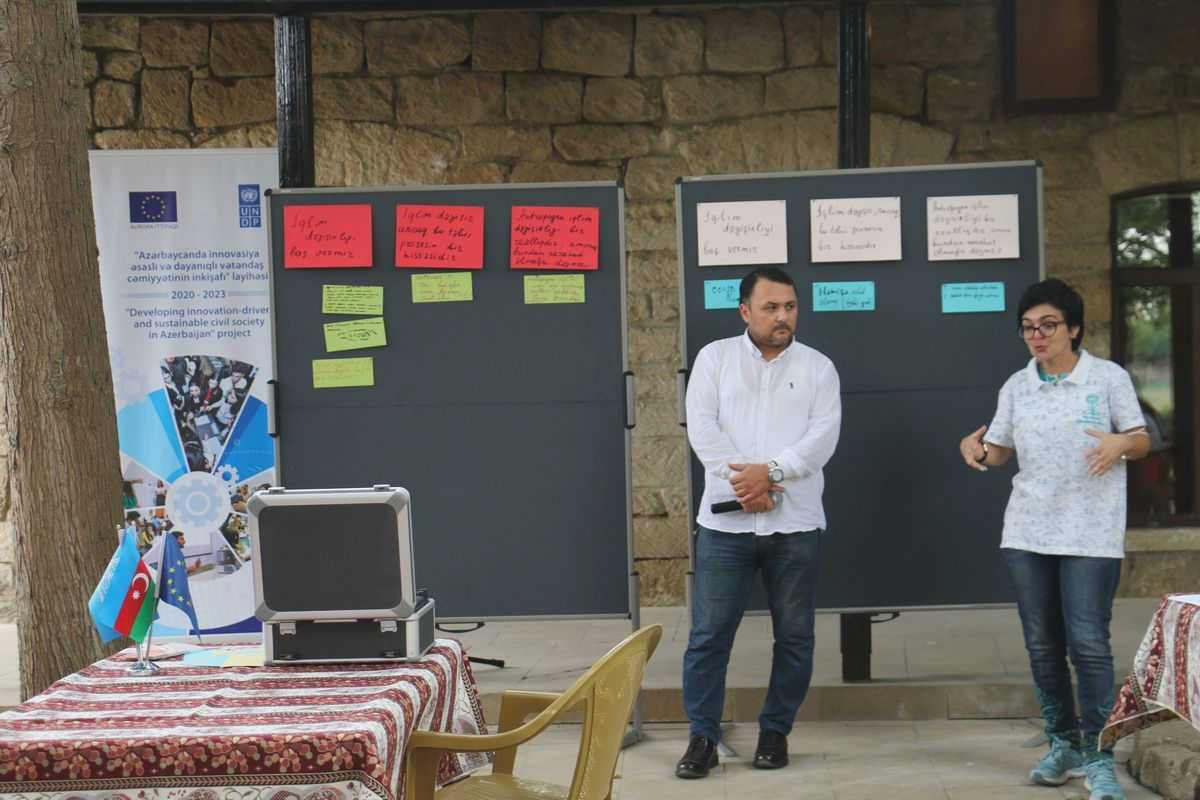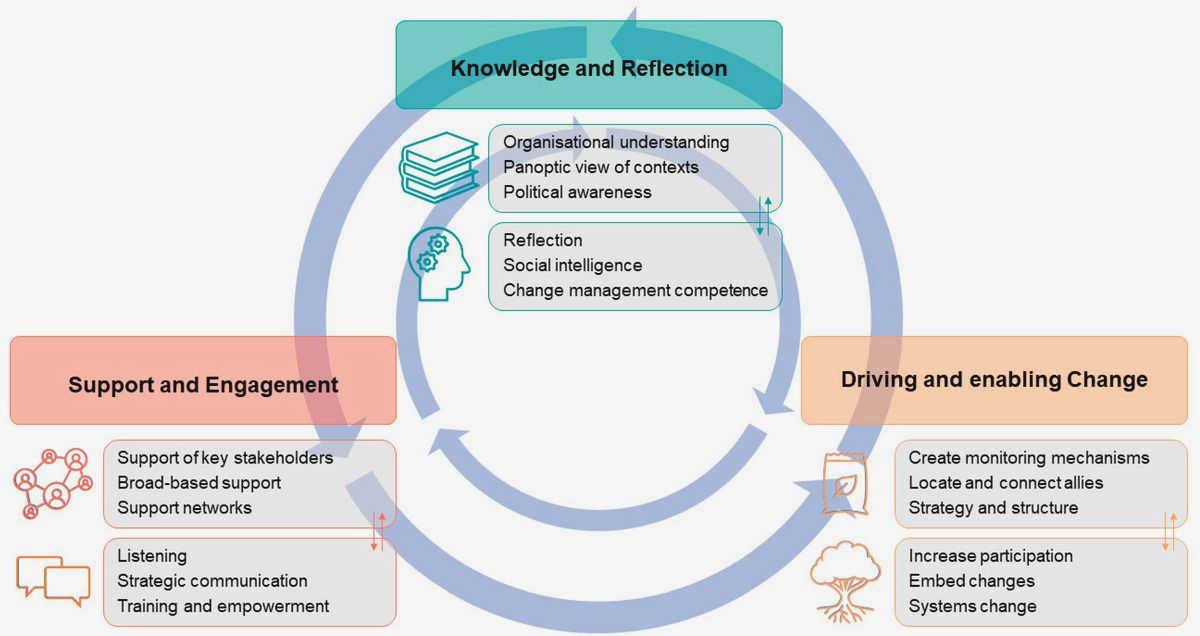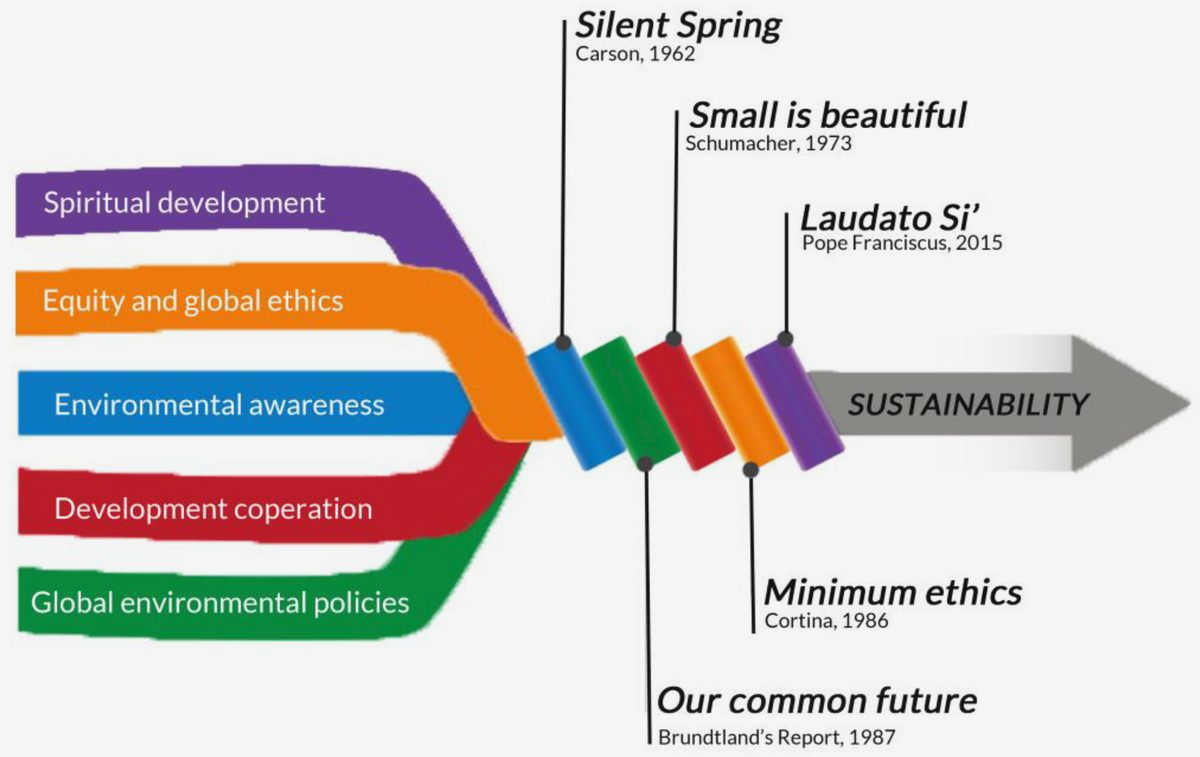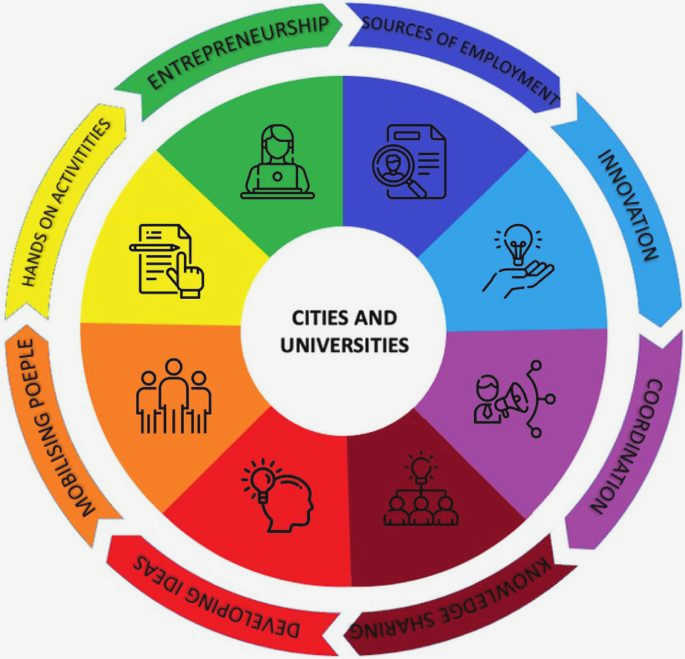Raising awareness and driving change are essential components in the pursuit of sustainable development. Civil society plays a crucial role in influencing and shaping sustainable development policies and practices. Through their collective actions and advocacy efforts, civil society organizations and individuals effectively mobilize communities, challenge the status quo, and drive positive change in various domains.
One of the primary ways civil society influences sustainable development is by raising awareness about environmental issues and their impacts on communities and ecosystems. These organizations and individuals engage in public education campaigns, disseminate information, and mobilize public opinion around environmental concerns, such as climate change, deforestation, and water pollution. By highlighting the consequences of unsustainable practices and promoting sustainable alternatives, civil society helps to shift societal values and priorities towards more sustainable development pathways.
Civil society also plays a critical role in holding governments, businesses, and other stakeholders accountable for their actions and policies related to sustainable development. Through advocacy and lobbying efforts, civil society organizations exert pressure on decision-makers to adopt and implement sustainable policies and practices. They monitor and assess the progress of various actors towards sustainable development goals and highlight any shortcomings or inconsistencies. By acting as watchdogs, civil society ensures that sustainable development remains a priority and that all stakeholders actively contribute to its achievement.
Furthermore, civil society acts as a platform for citizen engagement and participation in sustainable development processes. By involving a diverse range of individuals and communities, civil society creates spaces for dialogue, collaboration, and co-creation of solutions. Through public consultations, community-driven initiatives, and participatory decision-making processes, civil society ensures that the voices and needs of marginalized groups are heard and considered in sustainable development policies. This inclusive approach fosters social cohesion, empowers communities, and enhances the effectiveness of sustainable development strategies.
Understanding the Role of Civil Society
The role of civil society is crucial in driving sustainable development and achieving positive social change. Civil society refers to the collective action and participation of individuals, groups, and organizations that are independent from government and business entities. They play a vital role in advocating for human rights, promoting social justice, and influencing policy decisions.
Advocacy: Civil society organizations often serve as advocates for the marginalized and the vulnerable, giving voice to those who are often unheard. They raise awareness about pressing issues such as poverty, inequality, gender discrimination, and environmental degradation. Through lobbying, campaigning, and public mobilization, civil society fosters public debate and influences policymakers to take action.
Monitoring and accountability: Civil society plays a crucial role in monitoring the implementation of sustainable development goals and holding governments and businesses accountable for their actions. By conducting research, collecting data, and analyzing policies, civil society organizations can identify gaps, assess progress, and highlight areas that require improvement.
Innovation and collaboration: Civil society acts as a catalyst for innovation and collaboration by bringing together diverse actors, including individuals, communities, businesses, and governments. By fostering dialogue and cooperation, civil society organizations facilitate the exchange of knowledge, ideas, and best practices for sustainable development.
Community mobilization: Civil society organizations are often deeply rooted in local communities and work directly with them to drive change. Through grassroots initiatives, they empower individuals and communities to take ownership of their own development and solve local challenges. This bottom-up approach ensures that the needs and aspirations of communities are included in the decision-making process.
In conclusion, civil society plays a multifaceted role in sustainable development, from advocacy and monitoring to fostering innovation and community mobilization. Their efforts are essential in raising awareness, influencing policies, and driving positive change for a more inclusive and sustainable world.
The Importance of Raising Awareness
Raising awareness is a crucial step in driving change and promoting sustainable development within civil society. By educating individuals about relevant issues and encouraging them to take action, raising awareness can create a ripple effect that leads to a more informed and engaged society.
1. Informing the public: Raising awareness helps to inform the public about pressing issues and challenges related to sustainable development. By sharing facts, statistics, and real-life stories, civil society organizations can ensure that people have access to accurate information and a deeper understanding of the problems at hand.
2. Sparking conversation: By raising awareness, civil society can ignite important conversations and dialogue around sustainable development. This can bring together individuals from diverse backgrounds and perspectives, fostering a sense of community and encouraging the sharing of ideas and potential solutions.

3. Mobilizing action: Raising awareness is a powerful tool for mobilizing action within civil society. By highlighting the urgency and significance of certain issues, organizations can inspire individuals to take action, whether it be through signing petitions, attending protests, or engaging in volunteer work.
4. Driving policy change: By raising awareness and generating public support, civil society organizations can influence policy change at local, national, and international levels. By providing evidence-based research and advocating for sustainable policies, organizations can have a significant impact on shaping the political landscape.
5. Promoting behavioral change: Raising awareness can also encourage individuals to make sustainable choices in their everyday lives. By sharing information about environmentally-friendly practices and highlighting the benefits of these choices, civil society organizations can empower individuals to make a positive impact on their communities and the planet as a whole.
In conclusion, raising awareness is an essential component of driving change and promoting sustainable development within civil society. By informing the public, sparking conversations, mobilizing action, driving policy change, and promoting behavioral change, organizations can create a more informed, engaged, and sustainable future for all.
Educating and Mobilizing Communities
One of the key roles that civil society plays in driving sustainable development is educating and mobilizing communities. Through various initiatives, organizations and individuals work to raise awareness and provide information to community members about the importance of sustainable practices and the impact of their actions on the environment and society.
Education as a Tool for Change
Education is a powerful tool for creating change. Civil society organizations organize workshops, training sessions, and educational programs to teach community members about sustainable development, climate change, waste management, and other related topics. These initiatives aim to empower individuals with knowledge and skills that enable them to make informed decisions and take action to support sustainable development.
Mobilizing Communities for Collective Action
Mobilizing communities is another crucial aspect of civil society’s efforts to drive sustainable development. By bringing together individuals with a shared interest in promoting sustainability, civil society organizations can harness the power of collective action to drive change at the local, national, and global levels.

Community mobilization can take different forms, such as organizing campaigns, rallies, and demonstrations, or creating platforms for dialogue and collaboration. By engaging individuals and communities in these activities, civil society organizations are able to amplify their efforts and create a momentum for change.
Partnerships and Collaboration
Civil society organizations also play a key role in fostering partnerships and collaboration between different stakeholders. They facilitate dialogue between communities, businesses, governments, and other actors to promote sustainable development practices.
Through these partnerships, civil society organizations can leverage the resources, expertise, and influence of different stakeholders to drive sustainable development initiatives. By working together, communities and various actors can create innovative solutions, implement effective policies, and address complex challenges more effectively.
In conclusion, educating and mobilizing communities is an essential part of civil society’s efforts to drive sustainable development. By providing education and mobilizing communities for collective action, civil society organizations can empower individuals and communities to take a proactive role in creating a more sustainable future.
Advocating for Policy Change
One of the key roles that civil society plays in driving sustainable development is advocating for policy change. Through research, activism, and lobbying efforts, civil society organizations work to shape policies that address the pressing environmental, social, and economic challenges of our time.
Advocacy involves raising awareness about an issue, mobilizing public support, and putting pressure on decision-makers to take action. Civil society organizations often conduct research to gather evidence and make a compelling case for policy change. They use this evidence to inform the public, policymakers, and other stakeholders about the need for action and the potential benefits of specific policy reforms.
Civil society groups also engage in active campaigning and grassroots mobilization to build public support for their cause. They may organize demonstrations, marches, and social media campaigns to raise awareness, generate public dialogue, and put pressure on policymakers. By involving the public in their advocacy efforts, civil society organizations can amplify their impact and create a sense of urgency for policy change.
In addition to mobilizing public support, civil society organizations engage in lobbying to directly influence policymakers and decision-making processes. They meet with legislators, government officials, and other key stakeholders to present their research findings, share their perspectives, and advocate for specific policy reforms. Lobbying can include making recommendations, proposing amendments to existing legislation, or advocating for new policies that align with sustainable development goals.
Overall, advocating for policy change is a vital role that civil society plays in influencing sustainable development. By raising awareness, mobilizing public support, conducting research, and engaging in lobbying efforts, civil society organizations can drive change and contribute to a more sustainable and equitable future.
Collaborating with Government and Businesses
In order to drive sustainable development, civil society organizations often collaborate with governments and businesses to create meaningful change. By working together, these different actors can combine their resources, expertise, and influence to address complex societal and environmental challenges.
Government Collaboration: Civil society organizations can collaborate with governments to advocate for policy changes that promote sustainable development. They can provide valuable input and expertise in the development and implementation of policies and initiatives. By partnering with governments, civil society organizations can amplify their impact and ensure that their efforts are aligned with the larger national and international goals.
Business Collaboration: Engaging businesses in sustainable development initiatives is crucial for long-term impact. Civil society organizations can collaborate with businesses to promote responsible business practices, encourage corporate social responsibility, and drive sustainable innovation. By working together, civil society organizations can help businesses balance their economic interests with social and environmental considerations.
Building Partnerships: Collaborating with government and businesses requires building strong partnerships based on mutual trust and shared goals. Civil society organizations can initiate dialogues, workshops, and collaborative projects to foster understanding and cooperation. By building these partnerships, civil society organizations can create a platform for joint action and influence systemic change.
Challenges and Benefits: Collaborating with government and businesses can present challenges, such as differing priorities and power dynamics. However, the benefits are numerous. By collaborating, civil society organizations can access additional resources, expertise, and networks. They can also influence policy decisions, leverage business influence, and drive sustainable development on a larger scale.
Influencing Sustainable Development Goals
Civil society plays a crucial role in influencing the achievement of sustainable development goals. By engaging communities and raising awareness about these goals, civil society organizations can mobilize support and drive meaningful change towards sustainable development.
Raising Awareness
One way civil society organizations influence sustainable development goals is by raising awareness about the importance and urgency of these goals. Through campaigns, workshops, and educational programs, they can inform the public about the key areas that need attention and action. By highlighting the interconnectedness of social, economic, and environmental issues, civil society organizations can inspire individuals to take action and advocate for change.
Promoting Participation
Civil society organizations also play a crucial role in promoting participation in the development and implementation of sustainable development goals. They provide platforms for marginalized voices to be heard and ensure that decision-making processes are inclusive and transparent. By engaging with communities and facilitating dialogue between different stakeholders, civil society organizations can ensure that the goals and strategies set forth are relevant and responsive to the needs of the people they aim to serve.
Advocacy and Policy Influence
Civil society organizations have the power to influence policy and advocate for changes that align with sustainable development goals. By conducting research, producing reports, and generating evidence-based recommendations, they can provide valuable insights to policymakers and influence the development of policies and regulations. Through strategic partnerships and lobbying efforts, civil society organizations can push for systemic changes that support sustainable development and hold governments accountable for their commitments.
Monitoring and Accountability
Civil society organizations also play a crucial role in monitoring the progress towards sustainable development goals and holding governments and other stakeholders accountable for their actions. By collecting data, conducting independent assessments, and reporting on the implementation of the goals, civil society organizations can shed light on gaps and challenges, and advocate for corrective actions. Their work ensures that sustainable development goals remain high on the agenda and that efforts to achieve them are transparent and effective.
In conclusion, civil society organizations have a significant influence on sustainable development goals. Through raising awareness, promoting participation, advocating for policy changes, and monitoring progress, they can contribute to the achievement of these goals and drive meaningful and lasting change towards a more sustainable future.
Monitoring and Evaluating Progress
Monitoring and evaluating progress is an essential part of ensuring that sustainable development goals are being met and that civil society is making a meaningful impact.
Data Collection and Analysis
To monitor and evaluate progress, it is crucial to collect and analyze relevant data. Data can be collected through surveys, interviews, and other research methods. This data provides valuable insights into the current state of affairs and helps to identify areas that require attention and improvement.
Tracking Key Indicators
One way to monitor progress is by tracking key indicators. These indicators can be used to measure specific aspects of sustainable development, such as poverty rates, access to clean water, or gender equality. By monitoring these indicators, civil society organizations can assess whether progress is being made and adjust their strategies accordingly.
Collaboration with Stakeholders
Monitoring and evaluating progress is not a task that can be done in isolation. In order to get an accurate picture of the situation, it is important to collaborate with various stakeholders, including government agencies, NGOs, and local communities. This collaboration ensures that different perspectives are taken into account and that the evaluation process is comprehensive and inclusive.
Sharing Findings and Lessons Learned
Monitoring and evaluating progress is not only important for assessing the current state of affairs but also for sharing findings and lessons learned with others. By sharing this information, civil society organizations can inspire and motivate others to take action and drive meaningful change. Additionally, sharing findings and lessons learned can contribute to the overall knowledge and understanding of sustainable development strategies.
In conclusion, monitoring and evaluating progress is a crucial step in driving sustainable development. By collecting and analyzing data, tracking key indicators, collaborating with stakeholders, and sharing findings, civil society organizations can ensure that they are making a meaningful impact and driving positive change in their communities and beyond.
Funding and Resource Mobilization
Fundraising
Civil society organizations play a crucial role in sustainable development by raising awareness and driving change. However, these organizations often face challenges when it comes to funding their initiatives. Fundraising is a key strategy used by civil society organizations to secure the financial resources needed to support their projects and programs. This can involve traditional methods such as requesting donations from individuals and businesses, organizing fundraising events, or seeking grants from foundations or government agencies.
Partnerships
In addition to fundraising, civil society organizations also engage in resource mobilization through partnerships. By collaborating with other organizations, both within and outside of the civil society sector, they can leverage their resources and expertise to achieve a greater impact. These partnerships can take various forms, such as alliances, networks, or coalitions, and can help organizations access additional funding, share knowledge and best practices, and coordinate efforts towards common goals.
Crowdfunding
With the rise of technology and social media, civil society organizations are also exploring new avenues for funding and resource mobilization. Crowdfunding has emerged as a popular approach, allowing organizations to raise funds from a large number of individuals through online platforms. This method has the advantage of reaching a wider audience and can be particularly effective for grassroots organizations or initiatives that might not have access to traditional sources of funding.

Advocacy and Policy Influence
Another important aspect of funding and resource mobilization for civil society organizations is their ability to influence policies and advocate for change. By engaging in advocacy efforts, organizations can shape the political and social environment in a way that supports their goals and priorities. This can lead to increased funding opportunities, as governments and other stakeholders recognize the value of their work and allocate resources accordingly. Additionally, civil society organizations can also advocate for policies that promote transparency, accountability, and financial sustainability in the nonprofit sector, creating a more conducive environment for funding and resource mobilization.
In conclusion, funding and resource mobilization play a crucial role in the success of civil society organizations in driving sustainable development. Through various strategies such as fundraising, partnerships, crowdfunding, and advocacy, these organizations can secure the financial resources needed to support their initiatives and create lasting change in their communities.
Building Partnerships for Change
One of the key strategies employed by civil society organizations in driving sustainable development is building partnerships. These partnerships involve collaboration with various stakeholders, including governments, businesses, and other NGOs, to address complex issues and drive positive change.
1. Multi-stakeholder collaborations: Civil society organizations understand the importance of bringing together different actors to achieve sustainable development goals. Through multi-stakeholder collaborations, they can leverage diverse perspectives, expertise, and resources to develop comprehensive and effective solutions. This involves engaging with government agencies, private sector companies, academic institutions, and local communities to collectively address social, environmental, and economic challenges.
2. Advocacy and influencing policies: Civil society organizations play a crucial role in shaping policies and influencing decision-making processes. By bringing together diverse stakeholders and advocating for change, they can raise awareness about key issues, challenge existing policies, and develop innovative solutions. Through their collective voice, civil society organizations can push for policy reforms that support sustainable development and improve the well-being of communities.
3. Knowledge sharing and capacity building: Building partnerships also involves sharing knowledge, expertise, and best practices. Civil society organizations can collaborate with academic institutions, research organizations, and other NGOs to conduct research, gather data, and develop evidence-based solutions. Through capacity building initiatives, they can empower communities and individuals by providing them with the necessary skills and knowledge to drive change at the grassroots level.
4. Funding and resource mobilization: Partnerships are essential for mobilizing resources and funding needed to implement sustainable development initiatives. Civil society organizations can collaborate with businesses, philanthropic foundations, and international organizations to secure financial support and resources for their projects. By pooling together resources and expertise, they can maximize their impact and drive sustainable change.
5. Collective action and networking: Building partnerships also enables civil society organizations to engage in collective action and networking. By joining forces with other NGOs and advocacy groups, they can amplify their message, increase their outreach, and create a united front for change. Through networking initiatives, civil society organizations can create platforms for collaboration, knowledge exchange, and sharing of best practices, ultimately driving sustainable development on a larger scale.
In conclusion, building partnerships is a powerful strategy employed by civil society organizations to drive sustainable development. Through multi-stakeholder collaborations, advocacy, knowledge sharing, resource mobilization, and collective action, these organizations can create meaningful and lasting change. By working together with various stakeholders, civil society organizations can address complex issues and make a significant impact towards a more sustainable future.
Celebrating Success and Inspiring Others
Recognizing and celebrating success is an important element in inspiring others to take action towards sustainable development. When individuals, organizations, or communities achieve significant milestones or make positive contributions towards sustainable development goals, it is important to acknowledge their efforts and share their success stories.

By highlighting these success stories, we can inspire others to follow in their footsteps and drive change in their own communities. Success stories provide tangible examples of what can be achieved and demonstrate that sustainable development is possible. They serve as a source of motivation and encouragement for those who are working towards similar goals or facing similar challenges.
Sharing success stories also helps to raise awareness about the importance of sustainable development. It showcases the positive impact that individuals and organizations can have on the environment, society, and economy. It emphasizes the need for collective action and fosters a sense of community and collaboration.
One effective way of sharing success stories is through various digital platforms, such as websites, social media, and online forums. These platforms allow for wider reach and accessibility, enabling individuals from different parts of the world to learn from and be inspired by success stories from diverse contexts.
Furthermore, celebrating success and inspiring others should not only focus on big achievements, but also on small-scale changes and initiatives. Recognizing and celebrating every little step towards sustainable development helps to promote a culture of sustainability and encourages individuals to make their own contributions, no matter how small they may seem.
By celebrating success and inspiring others, we can create a ripple effect that leads to widespread action and accelerates progress towards sustainable development goals. It is crucial to continue sharing success stories, providing support and guidance, and empowering individuals and communities to take ownership of their sustainable development journey.





